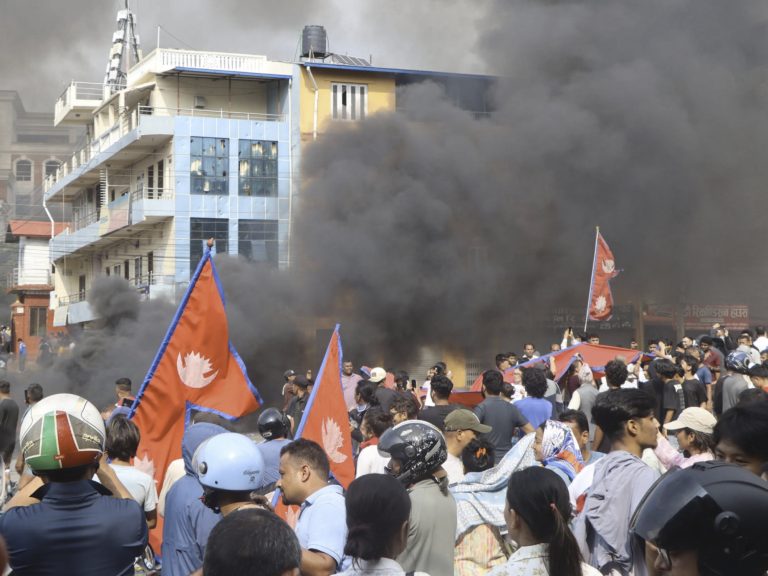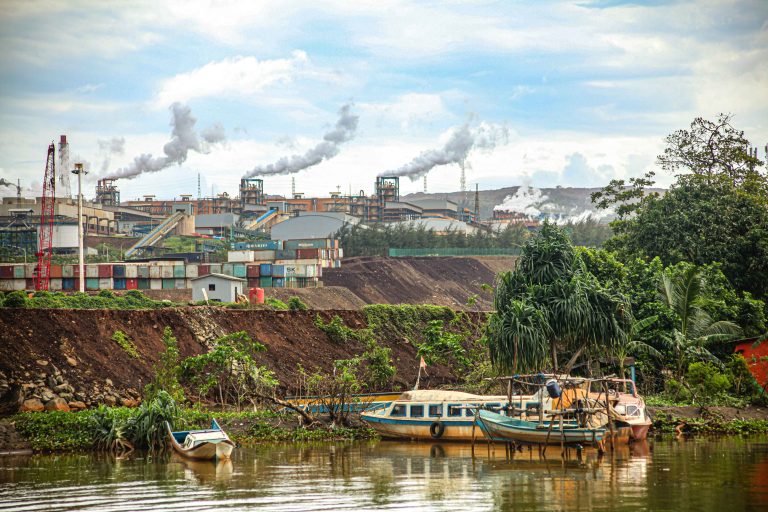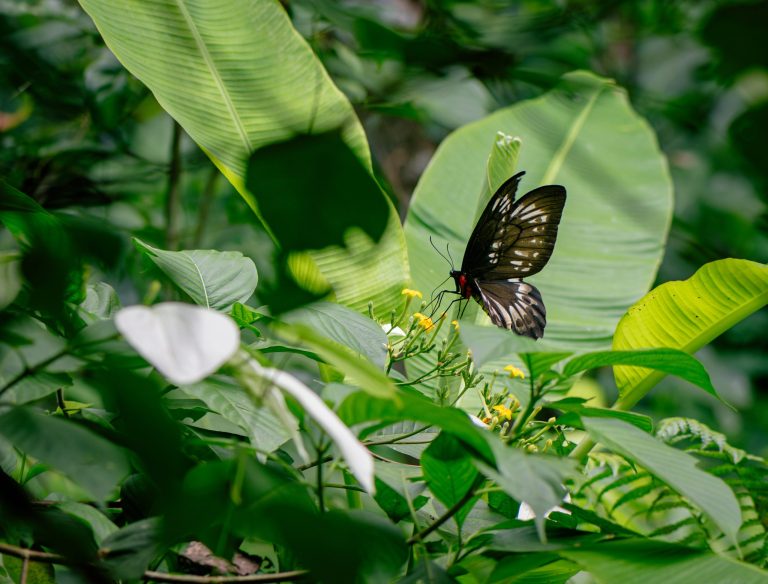The following article is an abridged translation of a longer Indonesian language article with some additional information added for readers less familiar with Indonesian politics. The original article was the product of a collaboration between Project Multatuli and fellow independent media outlets Jaring.id, Deduktif.id, and Narasi TV. A joint research team from these outlets analyzed the digital campaigns of all three candidates of the 2024 Indonesian presidential election. The team found that tens of billions of rupiah – millions of US dollars – were spent on boosting social media content, including nasty smear tactics and outright lies.
Indonesia’s 2024 presidential election was the first for Nelbi (not her real name), and the 12th-grade student from Citayam in West Java had already made up her mind; she would vote for Defense Minister Prabowo Subianto and his running mate, Surakarta Mayor – and son of incumbent President Joko “Jokowi” Widodo – Gibran Rakabuming Raka.
Nelbi was convinced Prabowo was a firm leader who would always act in the nation’s best interest and many of her friends had formed a similar opinion of the controversial former New Order general.
This particular image of Prabowo was often encountered across both legacy and social media during his successful run for president, and Nelbi said his campaign ads appeared regularly in the timelines of platforms that she uses, such as Facebook, Instagram, and TikTok.
These ads had some impact on her vote, said the 18-year-old, who is majoring in mechanical engineering at a vocational school.
“[Of all the candidates], my friends most often talk about Prabowo. I think he will win,” she said.
Nelbi knows about Prabowo’s past. In history lessons, she learned about the country’s transition from the authoritarian New Order regime to the current period of reform.
But for her, voters shouldn’t dwell on what happened in the past.
“[The past] isn’t important,” she said. “What’s happened has happened and it’s better to just focus on the present.”
A Facebook Facelift
Prabowo has long been haunted by his past, especially human rights abuses allegedly committed when he was in Indonesia’s special forces, including the killing of civilians during Indonesia’s occupation of Timor-Leste in the 1980s, as well as the kidnapping of pro-democracy activists towards the end of the New Order regime. He is also a former son-in-law of former president Soeharto, who presided over that regime from 1967 to 1998. This legacy was brought up in his three previous tilts at the nation’s top job: in 2009, 2014 and 2019. In the last two contests, Prabowo ran against outgoing president Jokowi. But since Jokowi’s last victory, Prabowo’s political situation has changed. In 2020, Jokowi appointed him defense minister, which meant several countries – including the United States and Australia – quietly lifted travel bans that they had imposed on him due to his human rights record.
In former election campaigns, Prabowo presented himself as a strongman – a former military tough guy. In this campaign, all remnants of that were stripped away. This time, Prabowo took on the persona of a loveable and friendly uncle, and the Indonesian slang word gemoy – meaning endearingly cute – quickly became a catchphrase of this new identity. Prabowo’s campaign team have said voters organically started using the term and denied its uptake was an attempt to reshape his public image. Nonetheless, it was certainly adopted and amplified by the campaign in a bid to bring him closer to Millennial and Gen Z voters.
Nelbi was one of 46.8 million first-time voters in the upcoming election – about 22.8 per cent of the 204.8 million eligible voters in Indonesia. As such, winning the Gen Z vote was an important focus for the candidates, all of whom ran social media campaigns to promote themselves to young voters. And this shift towards social media campaigning also dragged resources away from other areas. While most ad spending in the previous two presidential elections went to television campaigns, CNBC Indonesia reported that in the 2024 election spending on legacy media advertisements dropped by 50 percent.
Looking only at the official campaign pages of the three candidates, it’s clear that Prabowo spent far more to promote himself on Facebook and Instagram than his adversaries. The Ad Library of Meta – the parent company of the two aforementioned platforms – showed that Prabowo’s team spent more than Rp 1.1 billion (roughly US$68,000) between 28 October 2023 and 25 January 2024. That’s almost double what rival candidate Ganjar Pranowo spent: Rp 632,372,436 ($US39,000). Prabowo’s massive financial war chest was concentrated in 197 advertisements, while Ganjar’s was spread over 2,000. As can be seen in the graph below, Anies Baswedan, the third presidential candidate, seemingly didn’t prioritize advertisements on Meta. His campaign team only put out 33 ads with a total spend of Rp18.459.780 (US$1,139).
However, when looking beyond the official campaign pages, it’s clear all three candidates spent vastly more than the above figures to promote themselves on social media.
Smear campaigns and disinformation
Arya Priyadi started following the Instagram account Amin Gak Aman (“Anies and Muhaimin Aren’t Safe”) after one of its posts appeared in his feed during the 2024 presidential campaign. It was a video attacking Anies Baswedan, which attracted Arya, who had decided long before the campaign began that he wasn’t going to vote for the former Jakarta governor and education minister. Arya said he thinks that most of the information shared by the account, which posts on both Instagram and Facebook, is factual. In fact, this is far from the truth.
The account – which was created about a week before the kick-off of the 2024 presidential election campaign period – shared a lot of information that has been discredited by fact-checking organizations.
One video said that, according to Google, Anies was the dumbest-ever governor of Jakarta, and mocked his ostensible hypocrisy in criticizing Prabowo’s handling of the defense ministry in a presidential campaign debate. But according to the fact-checking group Masyarakat Anti Fitnah (Mafindo), Google has never officially ranked Anies as Jakarta’s most stupid governor, although the hoax has long circulated on social media. Mafindo says that the Google algorithm was manipulated to return this answer by people creating many web pages with this false information.
The account spread other false information about Anies, Mafindo says. For example, the account accused him of hypocrisy for claiming that he was opposed to corruption while appointing his wife to an early childhood education role in the Jakarta city administration and “giving” her Rp63 billion (US$3.8 million). The fact-checking group says this is untrue. Other posts suggested that Anies divides the Muslim community – which makes up about 87 percent of Indonesia’s population. Some posts suggested that, if he was elected, previously banned organizations would be resurrected, a reference to Anies’ perceived closeness to the hardline Islamic Defenders Front (FPI), which was banned by a joint ministerial decree in 2020.
Meta’s transparency tools show that advertisements hosted on Amin Gak Aman were funded by two digital agencies: Matarasa Digital and Sketsahouse. In their disclaimers, both companies listed the same contact number and address. Shortly after Prabowo was officially announced as the president-elect, Matarasa Digital changed its name and the Sketsahouse webpage could no longer be accessed.
Both companies also sponsored ads attacking Ganjar and his running mate Mahfud MD. These ads were shared via a different social media account, Gak Mau Sama Gamud (“We Don’t Want Ganjar and Mahfud”). One advert showed a controversial statement Ganjar once made when appearing on the highly popular Deddy Corbuzier podcast. While on the show, Ganjar said he didn’t see any moral issue with adults watching pornography, and acknowledged that he had previously enjoyed watching porn. This clip was combined with another in which a doctor explained the dangers of porn addiction.
Matarasa Digital and Sketsa House spent IRp16.3 million (US$999) on negative campaign ads ran through the Amin Gak Aman and Gak Mau Sama Gamud pages. Matarasa alone spent around IDR 300 million (US$18,388) on political ads between November 2023 – February 2024. The company didn’t just run negative ads about Prabowo’s opponents; it also delivered positive content about Prabowo and his running mate. Several other digital content agencies, some connected to political parties, did the same.
These tactics were not unique to the Prabowo camp; campaigns sponsored by Ganjar and Anies also directed money through unofficial channels to pay for ads smearing Prabowo. In many cases, two different sponsors of advertisements would share the same contact number – suggesting a degree of higher-level coordination.
Nonetheless, when it came to money directed through unofficial channels, Prabowo greatly outspent his opponents. Between the 1 January 2023 and 31 January 2024, he spent at least Rp28.6 billion ($US1.7 million), almost three times as much as Ganjar’s Rp9.9 billion (roughly US$612,000), while Anies’ camp spent Rp5.2 billion ($321,000).
Digital spaces are becoming an increasingly important part of political contests around the world, and Indonesia is no exception. Our investigation shows that Indonesia’s 2024 presidential election candidates were not transparent in how they ran digital campaigns; an ominous sign given the billions of rupiah spent in these spaces. While our investigation doesn’t decisively prove that the financial firepower Prabowo’s camp deployed toward digital campaigns was the sole or even main reason for his success, it was likely a significant factor.
Translator: Zacharias Szumer









